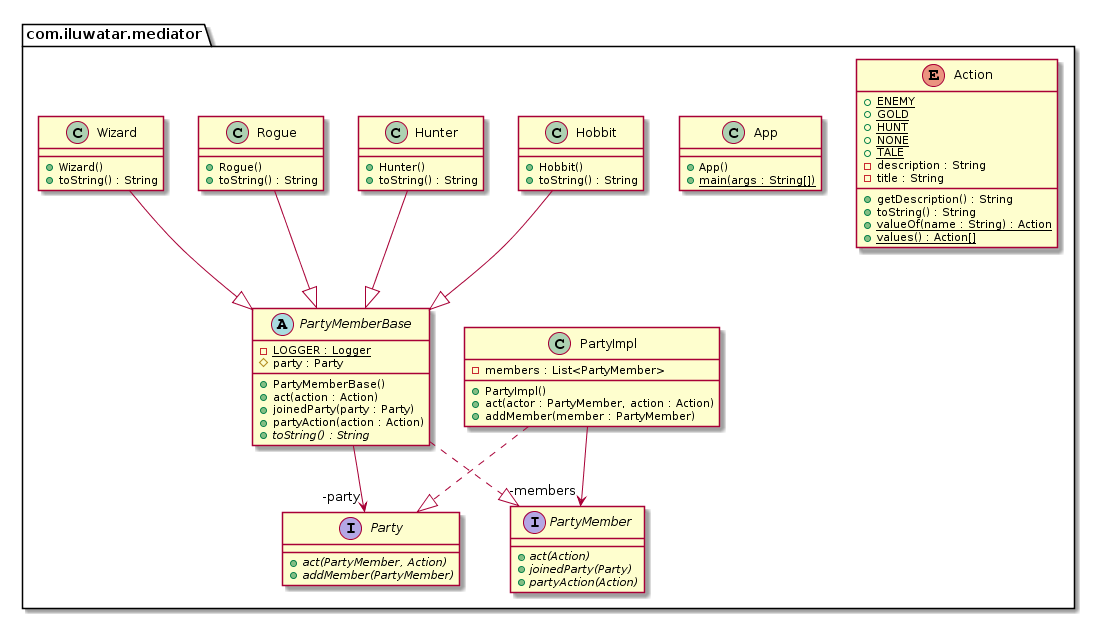public enum Action {
HUNT("hunted a rabbit", "arrives for dinner"),
TALE("tells a tale", "comes to listen"),
GOLD("found gold", "takes his share of the gold"),
ENEMY("spotted enemies", "runs for cover"),
NONE("", "");
private String title;
private String description;
Action(String title, String description) {
this.title = title;
this.description = description;
}
public String getDescription() {
return description;
}
public String toString() {
return title;
}
}
public interface Party {
void addMember(PartyMember member);
void act(PartyMember actor, Action action);
}
public interface PartyMember {
void joinedParty(Party party);
void partyAction(Action action);
void act(Action action);
}
public class PartyImpl implements Party {
private final List<PartyMember> members;
public PartyImpl() {
members = new ArrayList<>();
}
@Override
public void act(PartyMember actor, Action action) {
for (PartyMember member : members) {
if (!member.equals(actor)) {
member.partyAction(action);
}
}
}
@Override
public void addMember(PartyMember member) {
members.add(member);
member.joinedParty(this);
}
}
public abstract class PartyMemberBase implements PartyMember {
private static final Logger LOGGER = LoggerFactory.getLogger(PartyMemberBase.class);
protected Party party;
@Override
public void joinedParty(Party party) {
LOGGER.info("{} joins the party", this);
this.party = party;
}
@Override
public void partyAction(Action action) {
LOGGER.info("{} {}", this, action.getDescription());
}
@Override
public void act(Action action) {
if (party != null) {
LOGGER.info("{} {}", this, action);
party.act(this, action);
}
}
@Override
public abstract String toString();
}
public class Hobbit extends PartyMemberBase {
@Override
public String toString() {
return "Hobbit";
}
}
public class Hunter extends PartyMemberBase {
@Override
public String toString() {
return "Hunter";
}
}
public class Rogue extends PartyMemberBase {
@Override
public String toString() {
return "Rogue";
}
}
public class Wizard extends PartyMemberBase {
@Override
public String toString() {
return "Wizard";
}
}
public class App {
public static void main(String[] args) {
Party party = new PartyImpl();
Hobbit hobbit = new Hobbit();
Wizard wizard = new Wizard();
Rogue rogue = new Rogue();
Hunter hunter = new Hunter();
party.addMember(hobbit);
party.addMember(wizard);
party.addMember(rogue);
party.addMember(hunter);
hobbit.act(Action.ENEMY);
wizard.act(Action.TALE);
rogue.act(Action.GOLD);
hunter.act(Action.HUNT);
}
}
|

